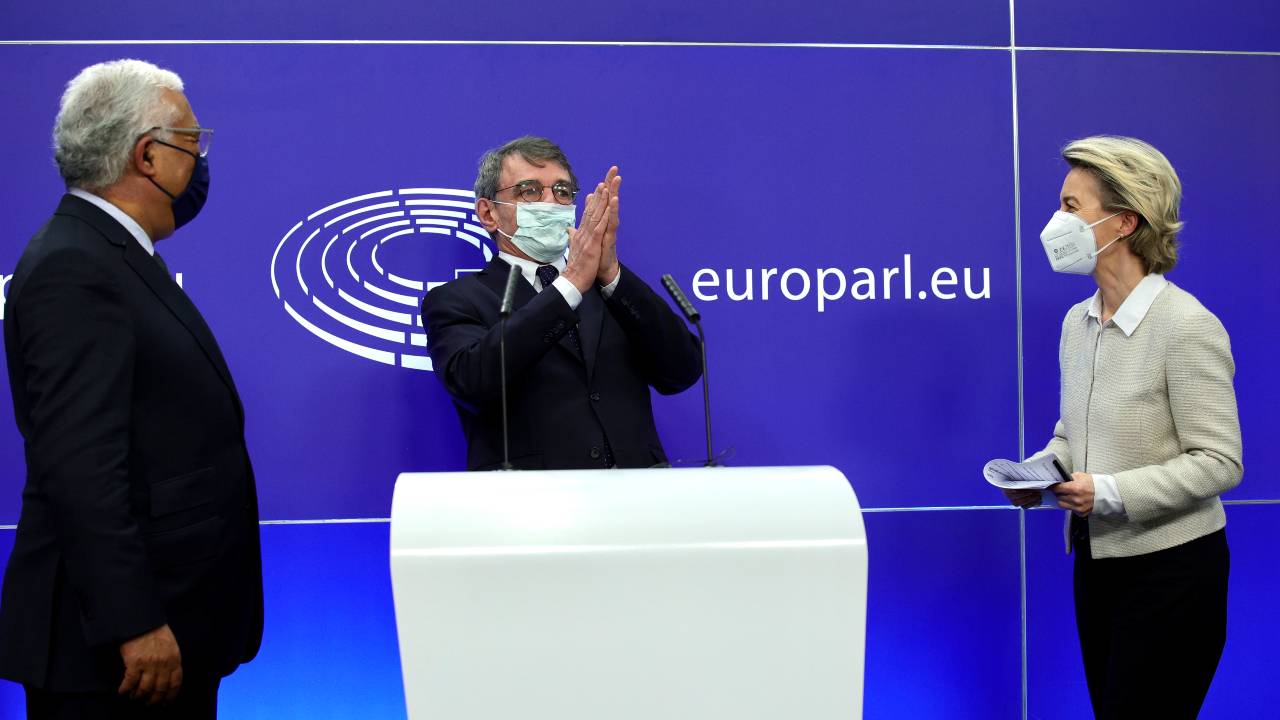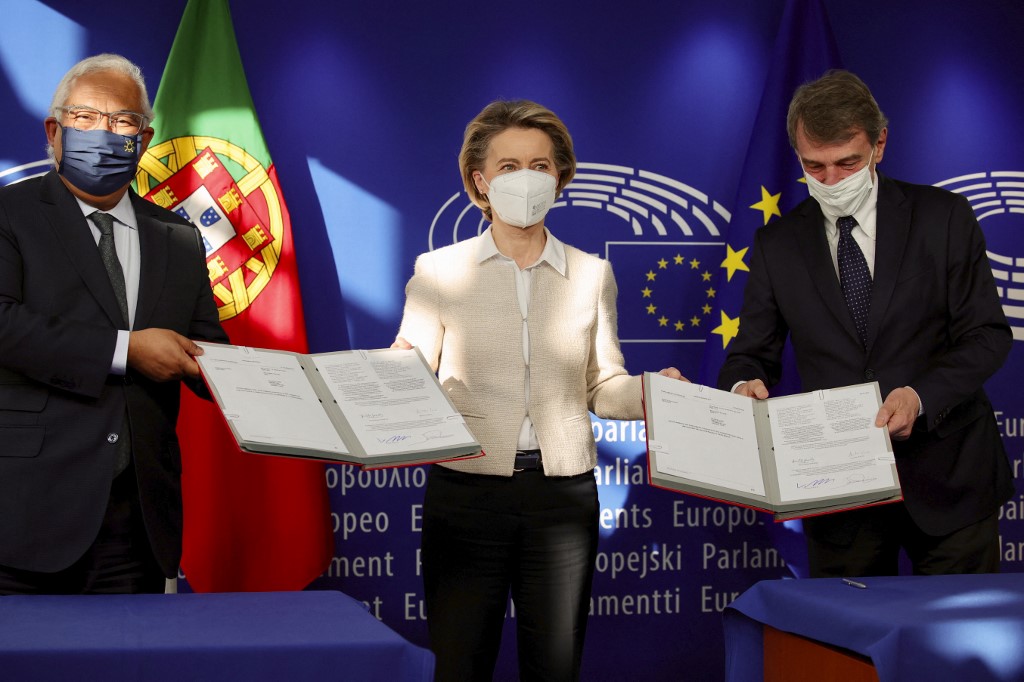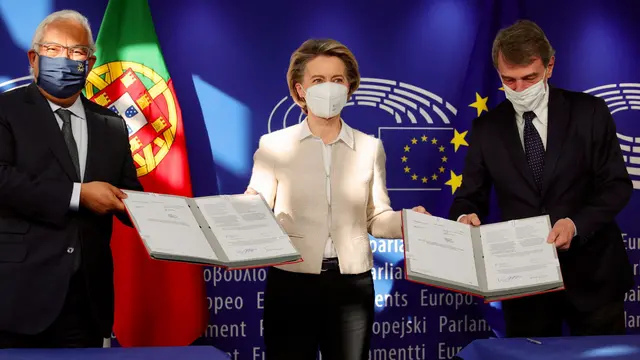
Top EU officials say the bloc will hopefully start spending its $909bn coronavirus economic recovery fund by September. /Olivier Matthys/AP
The European Union hopes to start spending its $909 billion coronavirus economic recovery fund by September, the bloc's chiefs have said, as the landmark stimulus package nears final approval.
"By mid-year, we should be able to disburse the first funds," European Commission President Ursula von der Leyen told a news conference on Friday.
Von der Leyen, alongside European Parliament President David Sassoli and Portugal's Prime Minister Antonio Costa, also called on EU member states to quickly approve a related decision to let the bloc's executive borrow the funds on the market.
"The moment the own-resources decision is ratified, the Commission will go to the market, raise money and disburse," said Von der Leyen.
READ MORE
Welcome to the Year of the Ox
Listen to an 18,000-year-old instrument
Looking for life on Mars
Costa said the economic stimulus was a key tool in the bloc's fight against COVID-19, calling it a "vitamin" to overcome the economic downturn inflicted by the disease.
The EU will allocate money from the fund to member states in the form of grants and cheap loans to help boost their pandemic-stricken economies amid a record recession.
A special emphasis is being placed on using the fund to promote green growth and bolster digitalization.

The EU Recovery and Resilience Facility document was signed today to help the bloc with the economic impact of COVID-19. /Olivier Matthys/AFP
The 27 governments must by the end of April outline in detail how they plan to spend the money.
The final proposals follow months of wrangling with the Commission, which is attempting to ensure structural reforms come together with mass spending.
Von der Leyen described the process as a "humongous" task, adding the Commission was pushing EU members to make their plans sustainable, reform their labor markets and tighten tax regulations.
Spain's recovery scheme has been cited as a good example, but Brussels officials have said countries including Italy and Germany needed to do more.
"The Commission told Germany, for instance, that what they had presented was insufficient and they would not get any money unless they do better," Klaus Regling, the head of the eurozone bailout fund ESM, said on Wednesday.
However, Berlin is reportedly loath to impose pension and labor tax reforms ahead of national elections in September.
Source(s): Reuters
 简体中文
简体中文

